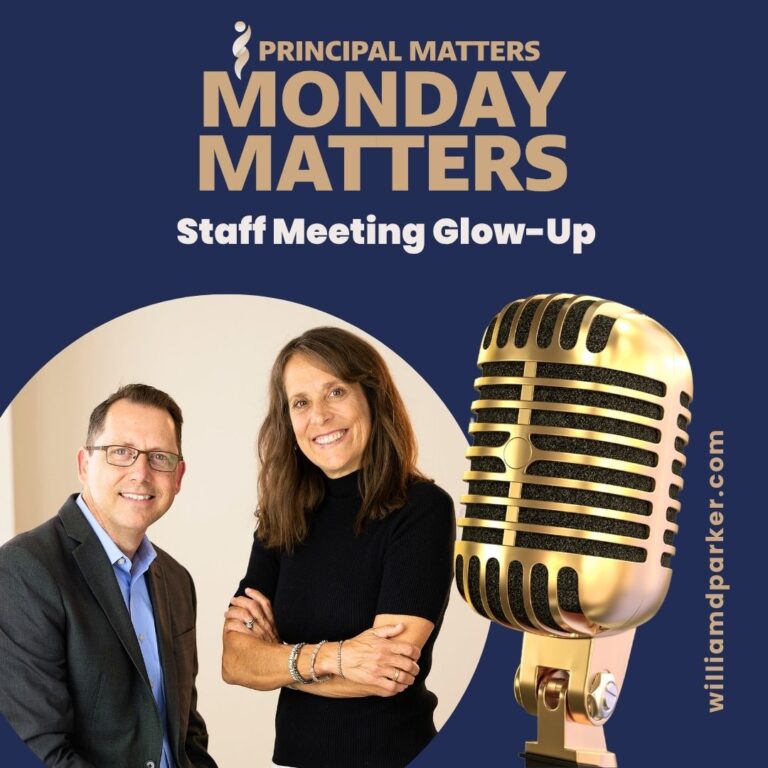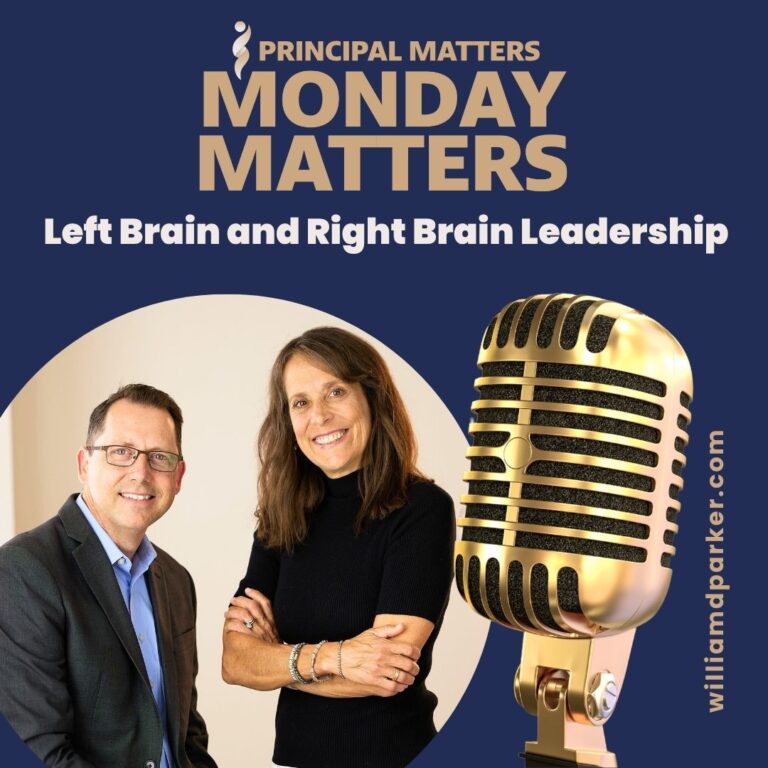Podcast: Play in new window | Download
This week I was interviewed again by Dr. Jeff A. Springer, Ed.D., Educational Leadership Coach – Spring Strategies, LLC, and 2013 TASSP Texas State Principal of the Year, as we explored the final chapters from my new book, Pause. Breathe. Flourish.: Living Your Best Life as an Educator.

Listen to the podcast episode for more takeaways. Here is a brief summary of our conversation:
Counting Days at School and in Life
Dr. Springer: You refer to the book, 20,000 Days and Counting: The Crash Course for Mastering Your Life Right Now, by Robert Smith. The author explains how each of our days is literally numbered. By the age of 55, you’ve lived 20,000 days. How many days do you have left? The reality is we do not have any time to waste. What does this look like for educators? How are you maximizing your time?
WDP: There is something powerful about perspective. This is an important conversation to have with students, which includes painting a picture for them of their ultimate goal in school or life. For high school students, for instance, I would ask my students to imagine graduation day together. This same perspective applies to adults. A friend once asked me what my personal goals were for the next five years. I had to admit I was mostly trying to survive. But the question haunted me. I began applying to myself the lessons I was asking my students to apply. For me, that meant investing in writing lessons about my experience in education leadership. Fast-forward and my work now with principals and educators is the outcome of those actions I began taking when I decided to make every day count.
Dr. Springer: I agree. When I was leading a high school, I literally lined up chairs in our assembly room, and we had incoming freshman sit in the order they could anticipate for graduation practice. In front of their parents, I would invite them into those seats and then challenge them to imagine the experience of graduating four years later. Being mindful of each day helps us see the meaning in each day.
Importance of Relationships Outside of School
Dr. Springer: Next question. You also talk about learning to climb together, instead of going alone. Why is this important in regards to your friendships?
WDP: I share a few stories in the book that provide some glimpses into more difficult moments in my life, like watching my mother-in-law struggle with Alzheimer’s. Or losing my oldest brother to an unexpected heart attack when he was in his 40’s. When our school work is over, who are the people still there for you outside that work? Those are the relationships that help sustain you when you are feeling hopeless – when no amount of self-talk motivates you – these relationships are essential during your most difficult days. If you haven’t experienced moments like this yet, you will. And relationships matter in helping you through them.
How Your Faith Influences Your Actions
Dr. Springer: How do you manage your faith in applying it to the work you do as an educator?
WDP: Faith and Transcendence are important conversations. As a believer in the Bible, I don’t expect others to share my faith beliefs. But I find such comfort and assurance in lessons that transcend the time and ideas we interact with every day. When is the last time you heard someone encourage you to love your enemies? Scripture provides this kind of perspective in a way you cannot find in news or current events.
Dr. Springer: Can you explain why you refer to Maslow’s Hierarchy of Needs as a way to explore Transcendence?
WDP: I remember a great presentation by Professor Scott Kaufman at an AMLE conference a few years ago about Maslow’s hierarchy of needs, that include physiological, safety, love and belonging, esteem, and self-actualization. Professor Kaufmann explained that in later writings by Maslow, he placed transcendence above self-actualization. For me, transcendence means the ability to understand myself and others within the context of something or someone eternal – and outside of myself. This often leads to mystery and worship.
Thoughts on Leaving a Legacy
Dr. Springer: How do we keep the eternal in perspective in the hard work educators do each day?
WDP: Let me end with some thoughts on your legacy, which I talk about in the book. I like to remind educators of two truths:
1. You are not as important as you think.
2. You are more important than you think.
Now let me unpack those seemingly contradictory statements. First, leaders should not be obsessed with themselves. Leadership is about serving others. So, don’t think too highly of yourself. Lose your ego. Second, every action you take matters. The small comments, attitudes, and decisions you make influence others either positively or negatively. This is way your integrity, character, and trust are so important in building relationships and meaningful outcomes for others. When educators keep those tensions in play, it helps keep meaning in our daily actions.
Lets’ Wrap This Up
Reflect this week on the following: How are making each day count? What meaningful relationships are you taking time to cultivate? How are you looking for meaning that transcends the present?
Now It’s Your Turn
Taking time for reflection is an important part of self-growth. But it is easy to become overwhelmed with ways you can be improving. Instead ask: What is one step or action I take today in a positive direction? Focus on what you can do, not on everything that needs to be done.
Connect with Dr. Jeff Springer
Jeff Springer’s website is CultivatingPlay.org. https://www.cultivatingplay.org. You can reach out to him for education consulting or find him via Twitter @cultivatingplay.




